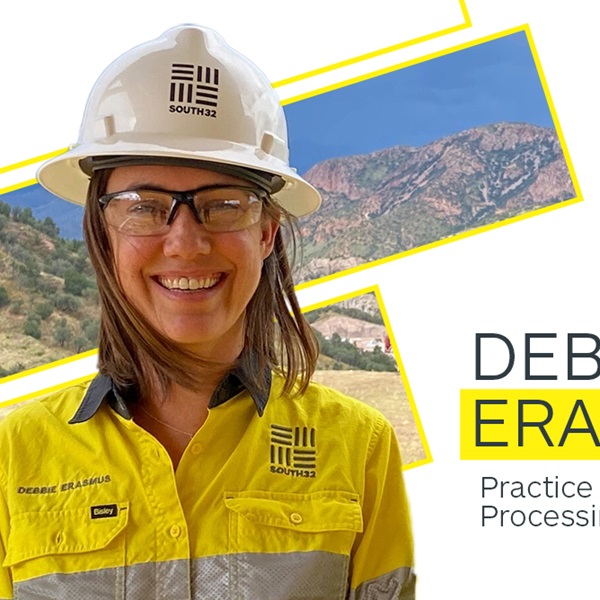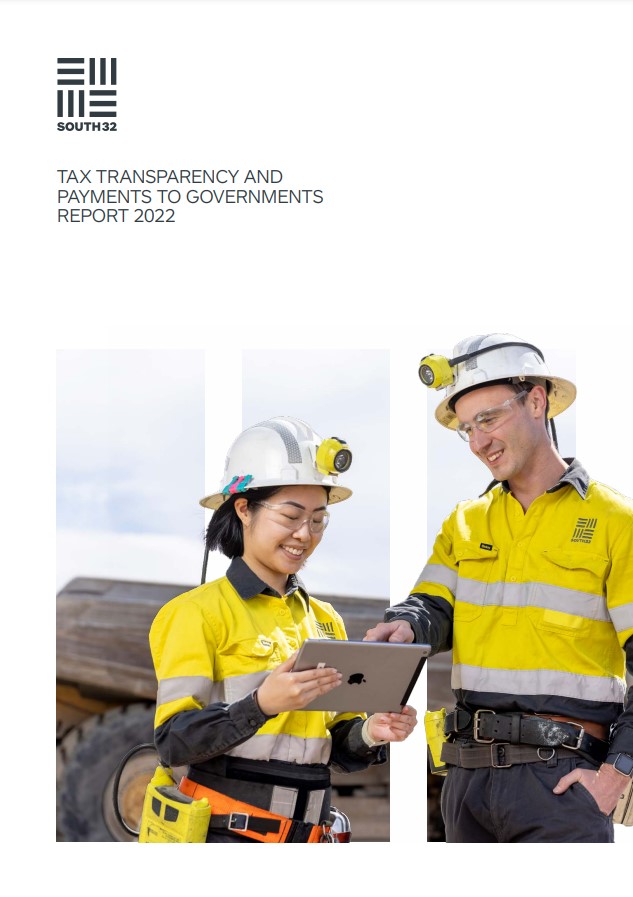
12 FEBRUARY 2024
International Day of Women and Girls in Science is marked on 11 February each year. To celebrate the occasion, we caught up with Debbie Erasmus, a trailblazing engineer from our Perth office and South32's Practice Lead for Processing Technology, to find out what she loves about being a woman in STEM and shine a spotlight on the contribution she’s making in her field.
Can you tell us about your pathway into your career, and why you joined the mining industry?
I grew up in South Africa on various mining properties surrounding Johannesburg – also known by its isiZulu name of “eGoli”, meaning the place of gold. I am the third generation in my family to work in the mining industry – it’s in my blood. My Dad and both my grandfathers worked on the South African and Zambian copper, gold, asbestos and platinum mines.
I studied Chemical Engineering at the University of the Witwatersrand and joined AngloGold as part of their graduate development program. My first job at AngloGold was at the East Rand Gold and Uranium plant, a gold tailings storage facilitiy - some of them produced by my grandfathers.
That was more than 25 years ago, and since then I’ve worked across the world in a wide range of roles from production, diamond plant design to metallurgical testing and process development.
What does a typical day at South32 look like for you?
A typical day involves meeting with the Hermosa Process Leads, working with the Innovation team on developing Next Generation projects, supplying subject matter expertise to the business, and contributing to specific multi-discipline projects like our current high impurity copper study work.
What advice would you give to young women considering or pursuing a role in STEM?
Dream big, as careers in science and engineering are exciting and worth pursuing. Find out more about the various careers on offer and don’t let fear stop you from trying. I think it’s important to find a mentor who is already working in a similar discipline and chat to them as you need a network of support.
The diversity in engineering and science degrees is phenomenal, you could end up working in research, technology development, production, commissioning, green technologies, decarbonisation, automation and more.
I have a strong belief that our next generation of engineers and scientists are fundamental to solving our global challenges. The work on circularity in mining, low or no water mining and processing and the invisible mine are just some of the fascinating areas that are pushing to explore how we balance mining activities with community and environmental needs.
What’s your experience being as a woman working in STEM and in mining? What challenges have you faced, and how have you overcome them?
At the beginning of my career, I was one of the only female engineers on an operation. I could write a book on the challenges as there were many, including incidents of sexism, aggression and being forced to wear male safety shoes that didn’t fit.
But the positives were huge, I’ve worked with the most amazing and respectful men, I learnt to believe in myself, I learnt about different cultures and gained practical experience on interesting equipment and plants.
I love what I do and feel a buzz of excitement when working on projects with other incredible team members. The good experiences have far outweighed the bad experiences and I have seen positive change in the industry (although we still have a way to go) and believe that women working in mining can change mining for future women.
What is your career highlight?
My technical highlight is being part of a team that developed the world’s first direct nickel plating semi-automated tank house in South Africa. It was an amazing project to be a part of, and a privilege to see a project from paper design to commissioning and full-scale operation.
How important is technical mentoring to young women pursuing a career in STEM?
There is a divide between what we know when we leave university compared to what is expected in our early roles. Technical mentoring can offer a real-world peek into how to apply our knowledge and grow it in an operating plant. Any engineer knows those “rules-of-thumb” that are never taught at university. Technical mentoring can offer a safe and ongoing space to keep learning from someone else’s experience.
The International Day of Women and Girls in Science was first declared in 2015 by the United Nations General Assembly. The dedication of this day aims to help achieve full and equal access to and participation in science for women and girls, and further achieve gender equality and the empowerment of women and girls.
Learn more about The International Day for Women and Science (un.org)
